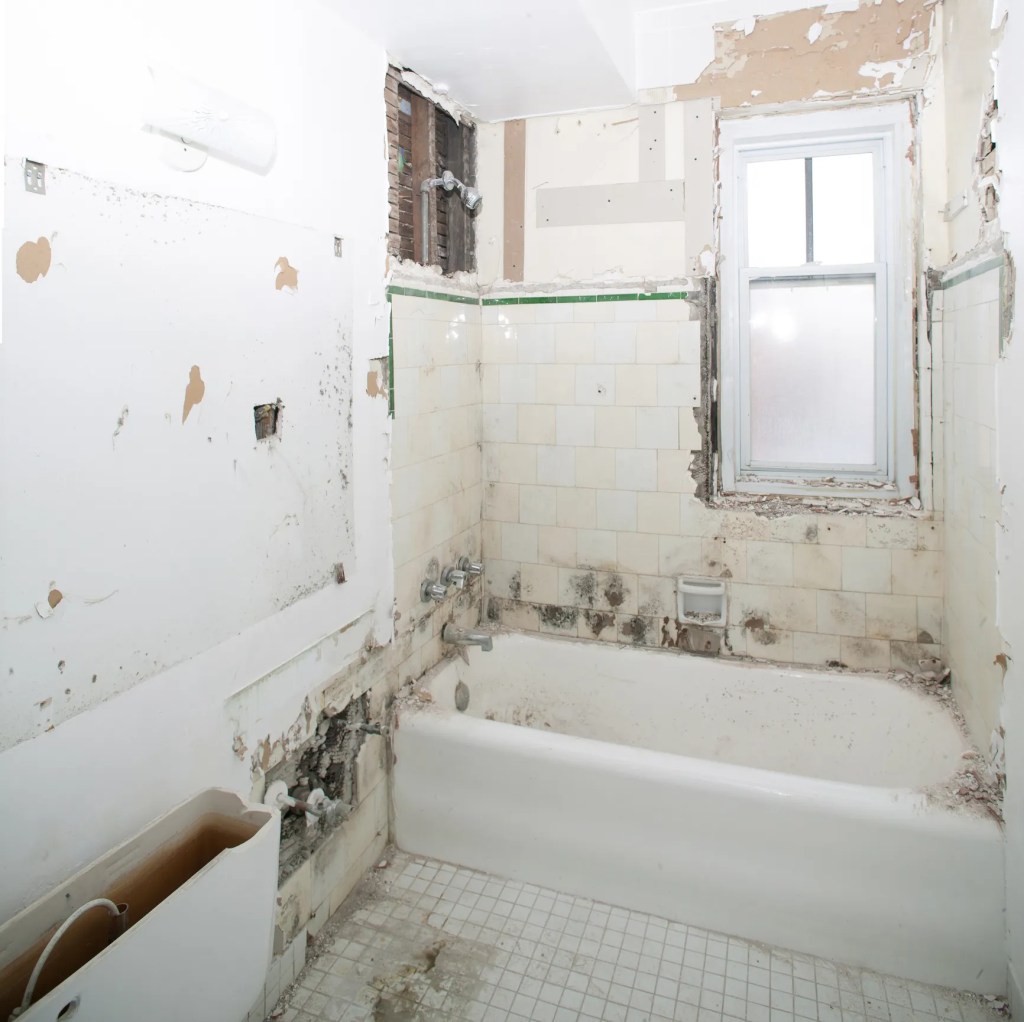Not every bathroom meets the latest standards. Owners of condominiums and houses can carry out renovations here at any time. Bathroom renovations in rented apartments, on the other hand, are not easily possible. So what can tenants do to transform the eyesore of their apartment into a small oasis of well-being?
Is there a right to bathroom renovation in rented apartments?
Crumbling joints, black edges in the toilet, tiles that are reminiscent of the 1970s (or are actually from that era) – if your bathroom is the eyesore of your apartment, you’ve probably wondered whether you’re entitled to a renovation as a tenant.
Housing associations usually renovate bathrooms every 25 to 30 years. The refurbishment is usually carried out as part of extensive renovation work on the entire apartment building. Such a basic renovation is usually recorded as a modernization and can result in a rent increase.
Right to repair
However, even long-established tenants are not entitled to a modern, attractive bathroom. Tenants can only expect the standard that existed when they moved in to be maintained. For example, the landlord can replace broken toilet flushes with old water outlets with identical but functional ones.
Tenants are only entitled to a new bathtub, a new toilet or a new sink if the existing parts are defective. In contrast to modernization, tenants have a right to repairs.
In principle, the following applies: Simply talk to your landlord. He alone will decide whether to comply with the request for renovation or modernization.
Agree renovation work with the landlord
Tenants can also carry out minor renovation work at their own expense without consulting the landlord. This includes a new coat of paint or the installation of a new shower curtain.
However, caution is advised with more extensive remodeling plans. Major structural measures require the landlord’s permission. This includes, for example, the replacement of tiles, toilets, bathtubs, showers and heating systems. Even the replacement of joints should be discussed with the landlord.

If you renovate without the landlord’s consent, you could face a warning or even termination. In the best-case scenario, the tenant will only have to pay the costs. In the worst case, all modernizations must be undone when the tenant moves out. If the old bathroom fittings have already been disposed of, this is of course no longer possible and is also extremely expensive.
Make a written agreement with the landlord
To be on the safe side, all planned renovation work should be recorded in writing with the landlord. In it, you and the landlord not only regulate the costs incurred, but also exactly what work will be carried out. To avoid any trouble or unnecessary damage, it is better to commission the bathroom renovation to professionals.
You may also be interested in these articles:
If the landlord refuses both modernization work and renovation at your own expense, you only have one choice: you have to conceal the unsightly spots in the bathroom in such a way that you can undo all the repairs when you move out.
Tiles and drill holes can be taped over, for example, and the toilet seat can also be replaced without much effort. With a fluffy bath rug, a few candles, some plants and a new shower curtain, your bathroom will look much cozier.
What experiences have you had with bathroom renovations in rented apartments?

Source: t-online
